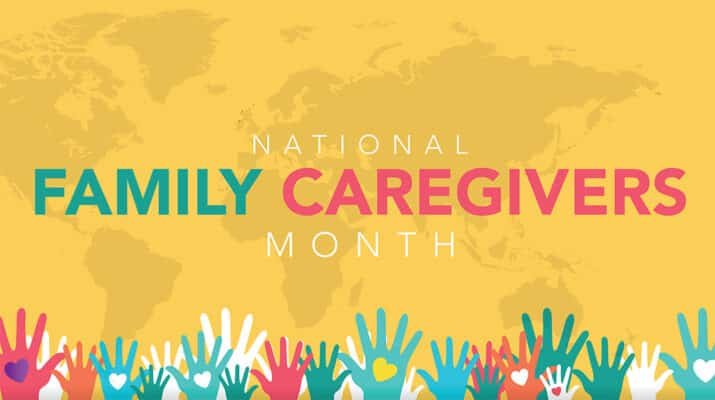By Kate Houck
“This weekend came in the nick of time. We never get time to ourselves as a couple—not as parents, not as caregivers, not as individualized education program managers. Just two people who fell in love. This weekend helped us fall in love even more with the people we are today.”
This heartfelt reflection from a caregiver husband is more than a “thank you” — it’s a glimpse into the emotional landscape of caregiving. It’s a world filled with love, sacrifice, and quiet resilience. But it’s also a world in which exhaustion and isolation often go unnoticed.
Across the U.S., more than 53 million people provide unpaid care to a loved one. They are spouses, siblings, children and friends — ordinary people doing extraordinary things. They manage medications, navigate insurance, attend appointments and advocate fiercely. But they also grieve silently, stretch themselves thin and often forget what it feels like to be seen.
Caregiving is an act of love, but it can also be a path to burnout.
A recent report from Cleo, a family benefits platform that supports working parents and caregivers through personalized guidance and resources, revealed a sobering truth: 60% of caregivers are at higher risk for depression and anxiety. The numbers climb even higher for those caring for loved ones with chronic conditions, cancer or nearing the end of life. For the sandwich generation—those caring for aging parents while raising children—the emotional toll is compounded.
That’s why National Family Caregivers Month, recognized throughout the month of November, is more than a calendar event. It’s a call to action. A time to honor caregivers, recognize their struggles, and remind them—and ourselves—that they deserve care too.
Understanding Burnout: The Hidden Cost of Care
Caregiver burnout isn’t just fatigue. It’s a deep, consuming exhaustion—emotional, mental, and physical—that can lead to serious health consequences. Warning signs include:
• Withdrawal from activities once enjoyed
• Increased irritability or sadness
• Changes in appetite or sleep
• Feelings of hopelessness or isolation
Without support, burnout can harm both the caregiver and the person receiving care. But with compassion, connection, and community, healing is possible.
David’s Refuge: A Sanctuary for the Soul
This is where David’s Refuge steps in.
A nonprofit born from love and loss, David’s Refuge offers caregivers what they rarely receive: rest, renewal and recognition. Through respite weekends, wellness programs, peer support and community events, they remind caregivers that they are not alone, and that self-care is not selfish—it’s essential.
One parent shared:
“Having a learning-disabled daughter has been very hard, compounded by taking care of my elderly mother who has Parkinson’s disease. Connecting with other parents who face similar difficulties helped us know that we are not alone. The respite weekends David’s Refuge provides are invaluable. Even just for a little while, we can escape, spend time together and refresh ourselves to keep doing what we must do.”
These stories are not rare—they are everywhere. In every neighborhood, every workplace, every community. And they deserve to be heard.
A Partnership for Change
This November, David’s Refuge is partnering with Excellus BlueCross BlueShield to shine a light on caregiver burnout. Together, they are sharing resources, hosting events and educating communities on how to recognize the signs—and support the caregivers in their lives.
Physician Nicholas Massa, vice president of medical affairs at Excellus BCBS, emphasizes: “Caregivers are the backbone of our health care system. Their compassion and commitment often go unseen, yet they are essential to the wellbeing of millions. Supporting caregivers isn’t just the right thing to do—it’s a public health priority.”
How You Can Help
• Reach out to a caregiver you know. Ask how they’re doing—not just how their loved one is.
• Share resources like David’s Refuge or local support groups.
• Advocate for caregiver-friendly policies in your workplace or community.
• Donate or volunteer with organizations that support caregivers.
From Burnout to Balance
As we recognize National Family Caregivers Month, let’s do more than honor devotion. Let’s commit to seeing caregivers fully—their needs, their humanity, their resilience. Let’s help them move from burnout to balance, rediscover joy, and continue their journey with strength and hope.
Because when caregivers are cared for, everyone thrives.
 Kate Houck is executive director of David’s Refuge based in Liverpool.
Kate Houck is executive director of David’s Refuge based in Liverpool.

